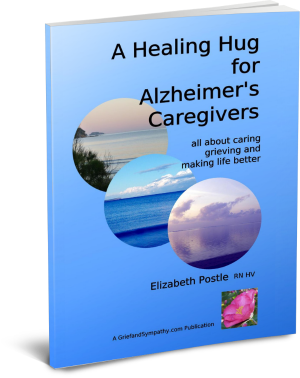Alzheimer's vs. Dementia? What's the difference?
What is the difference between Alzheimer’s disease and dementia?
Alzheimer's = a disease
Dementia = a symptom
The easiest way to think about it is that Alzheimer’s is a disease and dementia is a symptom.
Dementia can be caused by many medical conditions and is a symptom of a disease not a disease itself, whereas Alzheimer’s is a specific disease which can cause dementia.
A few facts about Alzheimer's Disease vs Dementia
- Alzheimer’s disease was first recorded in 1907 by Dr Alois Alzheimer when he reported the case of Auguste Deter.
- Sporadic Alzheimer’s disease can affect anyone at any age but usually affects people over the age of 65 years.
- Familial Alzheimer’s disease is a rare genetic condition that can affect people under the age of 65 years. Some even in their 40’s and 50’s.
- Alzheimer’s disease damages the brain so that it impairs memory, thinking and behavior.
- The biggest risk factor is advancing age 1 in 4 people over 85 years having dementia. Alzheimer’s disease causes around 70% of all cases of dementia.
- Dementia is a symptom caused by many conditions, it is not a specific disease. It results in a decline in mental ability which interferes with the sufferer’s ability to cope with daily life.
- Dementia can be caused following a stroke. It can also be caused by thyroid problems or vitamin deficiency and as both these can be reversed prompt diagnosis should be sought.
- Dementia is damage to brain cells which causes an inability of communication between cells which interferes with memory and thinking processes.
Any concerns of a family member should be reported to the family GP. Early diagnoses and some treatment may slow down symptoms.

What to do if you suspect dementia symptoms
Whenever anyone begins to show signs of confusion, changes of personality, depression, anxiety, or an inability to cope with everyday routines, which they had been previously capable of, then medical advice should be sought. You can read more about some of the early warning signs here.
Dementia can be caused by a head injury, a stroke, or a brain tumor to mention only a few. And it can also be caused by Alzheimer's disease. But there are hundreds of different causes. It is important to seek medical advice as soon as possible, as some causes of dementia can be treated much more effectively if diagnosed early.
Depending on which parts of the brain are affected and the different causes of dementia means that there are various different behavior patterns seen in sufferers. Therefore not all dementia sufferers symptoms are similar. It is always essential to get a specialist diagnosis as soon as you notice symptoms of concern.
Caring for people with Alzheimer’s vs Dementia
The general care for
people who have dementia for whatever cause is similar, though
medication and life expectancy may differ depending on what condition
has caused the dementia.
Caregivers of loved ones with dementia are those who face the biggest challenges. I have written several pages on this site about understanding dementia behaviours and coping with the grief of having a person with dementia in the family.
My book on Alzheimer’s Caregiving will also help those whose relatives have from dementia from any cause. It focuses on the caregiver and their need to look after themselves too. There are chapters on coping with grief, as well as sections on all of the challenges which caregivers face on a day to day basis. The book also contains an interview with a real caregiver on the daily realities of caring for someone with Alzheimer’s disease.
The book is also ideal for helping professional carers too. There are many helpful tips and practical advice on coping with many of the typical day-to-day challenges of dementia.
For more information on the contents of the book click on the image.
Related Pages:
Some early signs of Alzheimer's disease
Video explaining Alzheimer's Disease vs Dementia
Watch this short video where I explain the differences:
Where to get help:
Have You Considered One-on-One Online Grief Counseling?
Get Expert and Effective Help in the Comfort of Your Own Home
The following information about online counseling is sponsored by 'Betterhelp' but all the opinions are our own. To be upfront, we do receive a commission when you sign up with 'Betterhelp', but we have total faith in their expertise and would never recommend something we didn't completely approve.
Do you feel alone and sad with no support and no idea how to move forward? It can be tough when you are stuck in grief to find the motivation to get the most out of your precious life.
Online counseling can help by giving you that support so you don't feel so alone. You can have someone to talk to anytime you like, a kind and understanding person who will help you to find meaning in life again, to treasure the memories of your loved one without being overwhelmed and to enjoy your activities, family and friends again.
- Simply fill out the online questionnaire and you will be assigned the expert grief counselor most suitable for you. It only takes a few minutes and you don't even have to use your name.
- Pay an affordable FLAT FEE FOR UNLIMITED SESSIONS.
- Contact your counselor whenever you like by chat, messaging, video or phone.
- You can change counselor at any time if you wish.
- Click here to find out more and get started immediately.
- Or read more about how online counseling works here.
Sales from our pages result in a small commission to us which helps us to continue our work supporting the grieving.
Hypnosis for Grief - 10 Ways It Can Help You
Try a gentle hypnotherapy track to relax the mind. Learn how self-hypnosis can help you cope with grief at any time of the day or night.

- Grief and Sympathy Home
- Alzheimer's Spouse Grief
- Alzheimer's Vs Dementia





